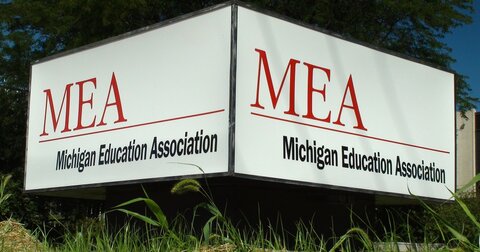Public Sector Unions Vague About How They Spend Dues Money
Many members have trouble finding out financial details
When teachers, other government employees or citizens want to learn how Michigan’s public sector unions spend dues money, details can be hard to come by.
“Our group tried to get officials to give us a breakdown of things like the amount spent on the liability insurance, legal services, Uniserv directors and support,” said Jim Perialas, a Roscommon teacher. He and his colleagues were once represented by a unit of the Michigan Education Association, which calls its contract negotiating arm "Uniserv."
“Basically we wanted to get it all. The organization was so bureaucratic, that we kept getting shuffled from person to person, and no one could give us an answer. It is very frustrating. When you get a lack of transparency, you can only assume that someone is hiding something,” he said.
The level of transparency varies by state because public sector unions are not covered by federal labor law, and need not engage in collective bargaining unless a state chooses to. Therefore, the amount of financial disclosure — or its lack — is determined by laws and regulations promulgated by individual states.
In Michigan this means government and school unions are allowed to operate without filing detailed financial disclosures like those mandated by the federal government for private sector unions.
Two of this state's larger public unions, the MEA and the American Federation of Teachers, do file federal “LM-2” disclosure reports because they also represent some private sector workers. But these filings do not detail how the unions' local branches spend money — even very large locals. For example, UAW 6000 represents about 22,000 state workers, according to its website. But under current Michigan law, it is only required to file a one-page disclosure report that carries three numbers.
Angela Steffke was prompted to look into her union’s finances when her dues jumped from $666.95 to $868.58. Her union, the Taylor Federation of Teachers, did explain how it spent some of its dues money but not all of it. TFT is affiliated with the nationwide American Federation of Teachers, which itself is part of the AFL-CIO.
“My local accounted for how it spent 52 percent of our dues. Why were we raising dues when we appeared to have so much saved? Where 48 percent of our dues went was a mystery,” said Steffke.
When she probed further, the union told her the remainder went to state and national organizations. So Steffke looked up an LM-2 for the national AFT, and learned that 98 percent of the political candidates who received union campaign donations were Democrats. She thought that was odd because most of the teachers she knew in her local group of 250 had no party affiliation and called themselves independent.
Steffke could also not understand why her local union was giving money to the AFL-CIO.
“I have no idea how this expense helps me in the classroom,” she said.
In 2012, Roscommon teachers voted to decertify the MEA — essentially to fire it — in part because of the lack of financial transparency. They formed an independent union, which Perialas says addresses this issue.
“Our financial records are totally open to our members. We send everyone updates. There is no hiding anything, because nearly everyone is involved in the decision-making process, regarding our revenue (dues) and expenditures,” he said.
Perialas and Steffke believe public sector unions in Michigan would be more accountable to their members if the state required detailed financial reports. Perialas said his independent union would welcome this reform.
“We’re not hiding anything. As a matter of fact, I’d like others to see how Roscommon is doing it. Our organization is quite simple, really,” he said.
Vickie Ackerman, a food service worker in the Plymouth-Canton Community Schools, has exercised her right to no longer pays union dues under Michigan's new right-to-work law. But she nevertheless wants more financial transparency because the union still has final say on her pay, benefits and working conditions.
“I never know how those dues are being spent and (the information) is not readily available to members. They have said at meetings all the benefits we have gotten for our money but [to] have a public filing would make them more accountable for their spending and there would be transparency,” she said.
Michigan Capitol Confidential is the news source produced by the Mackinac Center for Public Policy. Michigan Capitol Confidential reports with a free-market news perspective.

